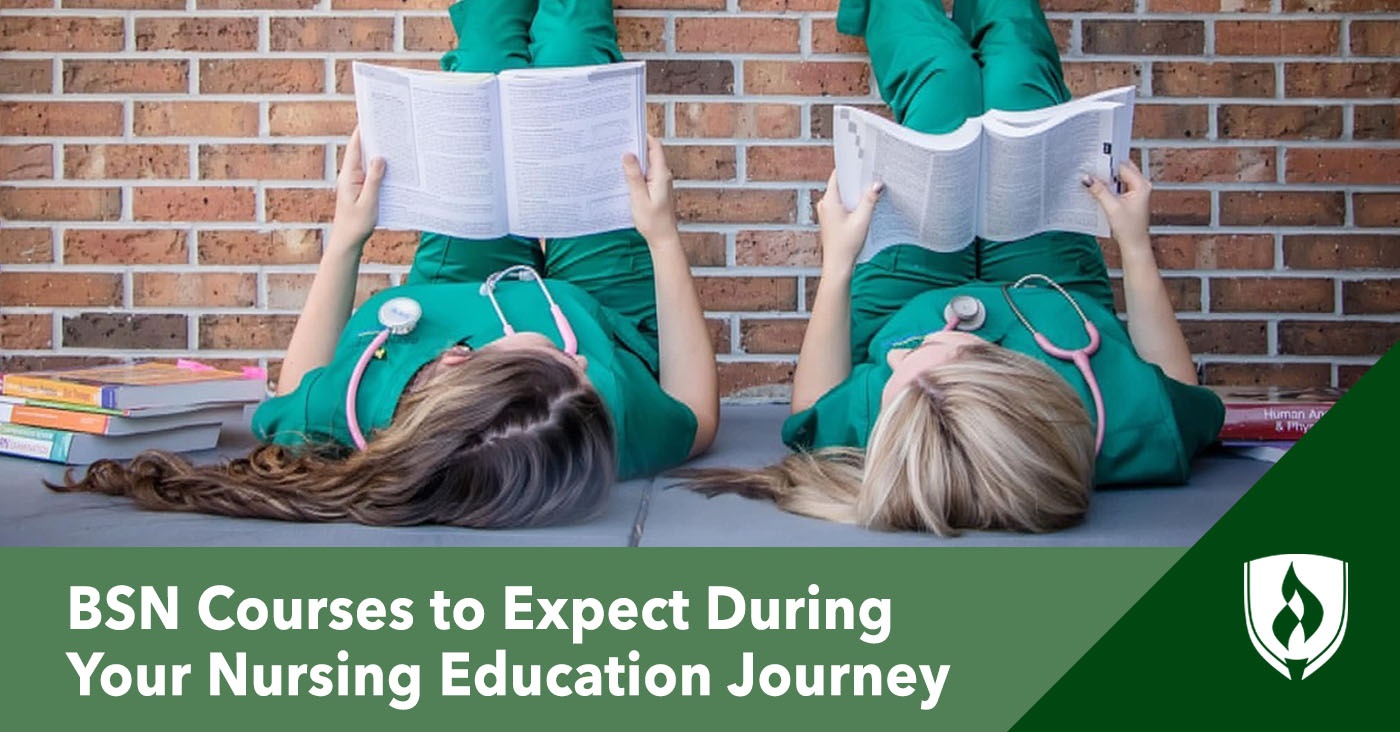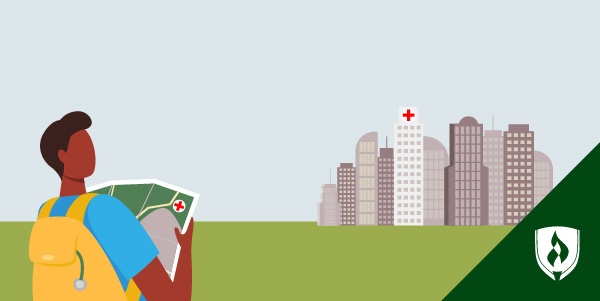
Nursing is a respected profession, and it’s not just because they make a difference in patients’ lives. Nurses undergo rigorous medical training to prepare them to work in healthcare. Patients trust nurses because they know that RNs have the expertise and knowledge required to do their jobs well.
But what many people don’t know is that there are different levels of nursing education to choose from. Most aspiring RNs choose between an Associate’s Degree in Nursing (ADN) and a Bachelor of Science in Nursing (BSN). Both of these degree paths allow students to sit for the NCLEX-RN exam and become registered nurses. However, acquiring a BSN can potentially open up career opportunities that may not be available otherwise.
You’re on the fence about pursing a BSN degree. What sort of BSN courses will you encounter if you enroll in this program? Will this degree really give you a leg up in the nursing field? Whether you’re new to nursing or have an established career as an ADN-RN, read on to find out what to expect from a BSN program.
Get Your Nursing School Questions Answered at a Nursing Information Session
The value of a BSN
Although an ADN will allow you to earn your scrubs and begin a nursing career more quickly, pursuing a BSN has its advantages. The Bureau of Labor Statistics (BLS) notes that, although ADN-RNs are often qualified for entry-level positions, employers like hospitals may have a preference for candidates with a BSN.1
Additionally, earning a BSN can also open up a wider variety of career opportunities. According to the BLS, a BSN is usually required for nursing positions that aren’t patient facing, such as administrative, education or research careers.1
Caring for patients in a clinic or hospital might be the only role on your radar at the moment. But you never know how things will change down the road. Someday you might want to contribute to the future of nursing by teaching the next class of nursing students or performing clinical research. Those positions can be available if you already have a BSN in hand.
An inside look at BSN courses
If an ADN program can prepare you for the hands-on work of being a registered nurse, you’re probably wondering what else is covered in the step up to a Bachelor’s degree. As you might expect, many of the courses you’ll find at this level will focus on developing the important research, analysis and leadership skills needed for advanced nursing positions.
Ready for more? Let’s take a closer look at several of the BSN-level courses you’ll find at Rasmussen College.
Emerging Healthcare Technologies and Innovation
This course gives you the ins and outs of nursing informatics, an RN career that marries nursing with breakthroughs in science and technology. You’ll learn how to improve healthcare outcomes using innovative technology, while still honoring safety, quality of care and ethical concerns.
Research and Theory
This course is your introduction to nursing theory. Here, your focus will be on the principles of the researching process and how they relate to the evaluation of nursing research. You’ll also study the work of leading nursing theorists, as well as discuss the intersection of nursing theory, research and evidence-based practice.
Clinical Reasoning and Clinical Judgment
The goal of this course is to show you how to take your nursing knowledge and turn it into action as an RN in the field. You’ll be given the mental tools to help you make key clinical judgments in stressful situations. The strategies you learn in this class will come into play throughout your entire nursing career.
Public Health Nursing
Public health nurses are the unsung heroes of the healthcare world. This course prepares you to join their ranks. Here you’ll learn about the influence of cultural differences and government policy on the stability of community health, and you’ll put your knowledge in action in a clinical component that gives you firsthand experience in population-based care.
Professional Identity of the Nurse Leader
This course combines nursing with the principles of strong leadership and management. You’ll learn how to make data-driven decisions that impact healthcare systems and will examine innovative strategies that lead to an increased quality of care. In the end, students are challenged to think about a professional nursing identity that includes integrity, advocacy, leadership and effective nursing practice.
Influence of Policy, Finance and Law on Healthcare
Nursing is affected by health policy, economics and legal influences, and this course examines them all. Here, you’ll learn about how political actions and regulatory decisions can impact the way you care for and interact with patients. You’ll also be trained to evaluate strategies to reduce the risk of legal action related to errors.
Bachelor of Science in Nursing Capstone
The BSN capstone is the culminating course that encapsulates everything you’ve learned on your nursing education journey, including ethics, research, emerging technologies and safety best practices. The emphasis of this course is to create a therapeutic nursing environment for both yourself and your client, using evidence-based findings to support your decisions.
Boost your nursing career with a BSN
Now that you’ve taken a closer look at these BSN courses, it’s easy to see how they can help build on your nursing experience and expand your potential career options.
Whether you already have an ADN, a non-Nursing Bachelor’s degree or have no college credit whatsoever, there’s a path for you to obtain your BSN.
If you already have an Associate’s Degree in Nursing, you’ll want to start at the Rasmussen College RN to BSN program page. For those with no college credit or a Bachelor’s degree in an unrelated field, the Bachelor of Science in Nursing program page is your best place to start learning more.
Related Articles:
- What Is Forensic Nursing? Investigating the Crossover of Law and Medicine
- I Want to Be a Nurse, but I Didn’t Major in Nursing
- What Is a Public Health Nurse? Exploring This Impactful Nursing Specialty
- Types of Hospitals: Your Go-to Guide for Deciphering the Differences
- MN Nursing: 4 Reasons Why It's Great to Be an RN in Minnesota
- What Degree Do You Need to Be a Nurse? Laying Out Your Options
- Inpatient vs. Outpatient Care: What Nurses Need to Know
1Bureau of Labor Statistics, U.S. Department of Labor, Occupational Outlook Handbook, [accessed November 2022] www.bls.gov/ooh/. Information represents national, averaged data for the occupations listed and includes workers at all levels of education and experience. This data does not represent starting salaries. Employment conditions in your area may vary.


.png)

